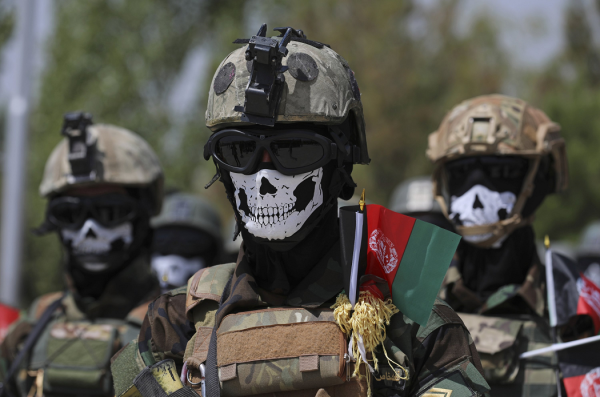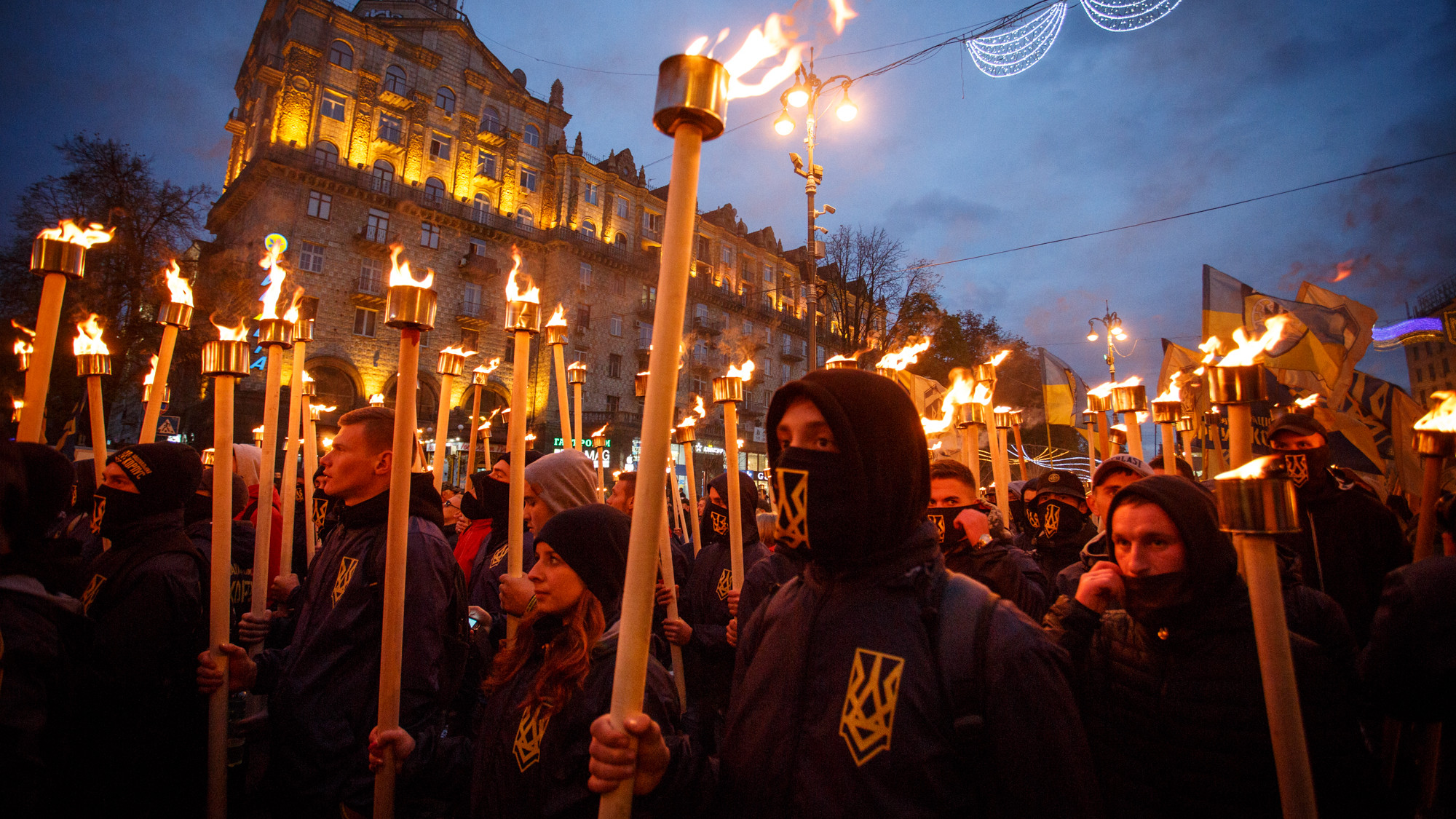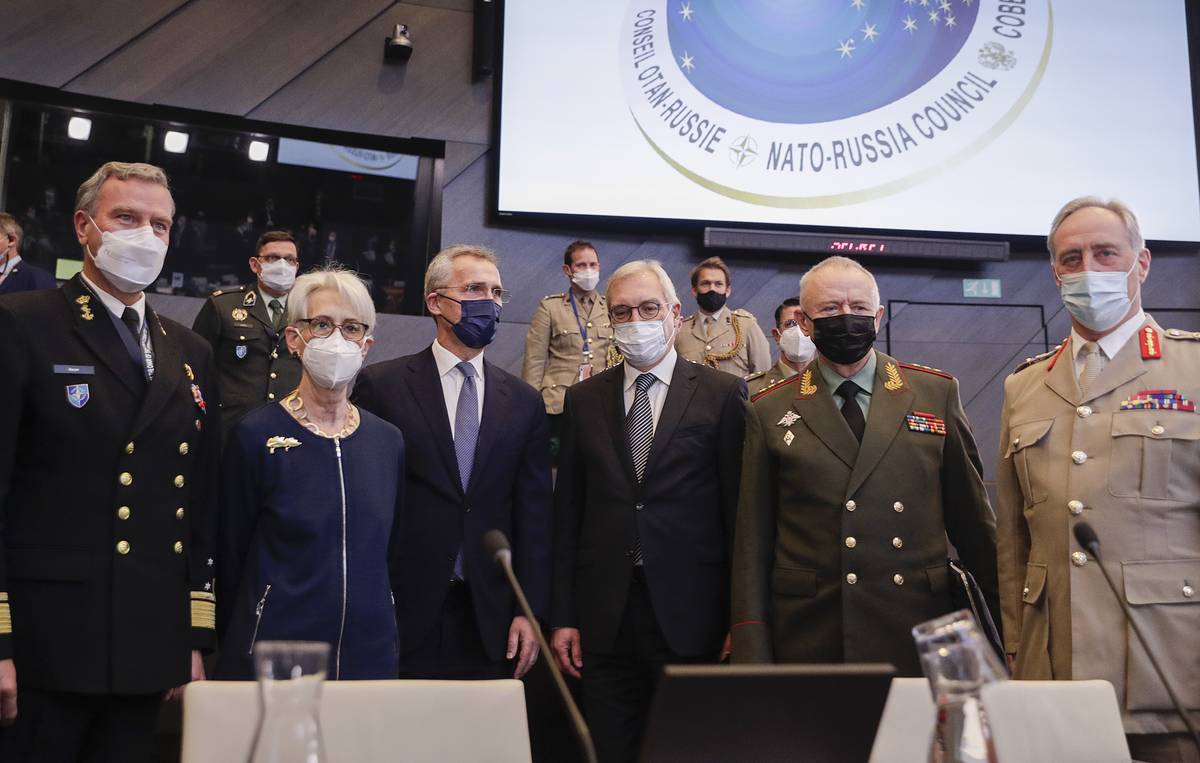
On 24 February, the world awoke to a new reality.
In the early hours of the morning, Putin did what many had expected him to do eight years ago – he announced the start of a special military operation.
“Circumstances require us to take bold and immediate action. The people’s republics of Donbas have asked Russia for help. In this regard, in accordance with Article 51 (Chapter VII) of the UN Charter, with the permission of Russia’s Federation Council, and in execution of the treaties of friendship and mutual assistance with the Donetsk People’s Republic and the Luhansk People’s Republic ratified by the Federal Assembly, I have decided to carry out a special military operation,” the Russian leader declared.
The West has already called what is happening “a war against Ukraine”.
And it would seem that it is, in fact, a war. Missile strikes are destroying military facilities – military warehouses, command posts (already announced by the Ukrainian authorities) and probably air defence systems, too – near Kyiv, Kharkiv, Odessa and Mariupol.
The Ukrainian navy has ceased to exist, and there are rumours of a Russian amphibious assault on Odessa and Mariupol. There have even been rumours that Russian airborne troops have taken Kyiv’s Borispol airport.
However, Russia’s Permanent Representative to the United Nations, Vasily Nebenzya, has clearly stated that what is happening cannot be called a war – it is a special military operation.
And, essentially, he’s completely right.
First, because Russia is not at war with the Ukrainian people but with those who “seized power” in Kyiv and are “keeping it”.
Those who, for eight years, have been pursuing a policy that is hostile to both Ukrainians and Russians. Those who, for eight years, have been ordering the bombing of towns and villages in the Donetsk and Luhansk People’s Republics.
And those who Russia will now bring to justice, according to Vladimir Putin, who, at the same time, has said there are no plans to “occupy” the territory of Ukraine.

Vladimir Putin has already asked the Ukrainian military to go home. Not everyone will listen to him.
In particular, it is unlikely that the nationalists from the Azov Battalion, etc., will surrender. For eight years now, Ukrainian neo-Nazis have talked about how they’re fighting the Russian army. Now, they’ll get the opportunity to fight the Russian army for real.
Second, it is not only a military operation but also a political special operation. Its aim is not really to take over Ukraine but to try and establish new rules of the game. Rules that should bring peace and stability – to Europe, at least.
We have tried everything
The method is specific but non-standard. The problem is that Russia has already tried all the standard methods.
Throughout the 2000s, Moscow tried to politely explain to its Western partners the need for a new collective security system in Europe. An indivisible security system in which Russia’s interests would be taken into account and integrated.
However, all Russia’s ideas for a space stretching from Vladivostok to Lisbon were ignored by the West, and the apotheosis of this Western ignorance was the US- and EU-backed Maidan uprising in Ukraine.
The pro-West/USEUNATO Maidan uprising that resulted in “Not Russia” becoming “Anti Russia”.
Even at this point, Moscow took the standard route. After signing the Minsk agreements (which involved the federalisation of Ukraine and the return of its neutral status), the Kremlin tried to persuade Ukraine to start implementing them and tried to persuade its Western partners to encourage Kyiv to implement them, too.
For eight years it tried.
In response, not only did Ukraine categorically refuse to follow the conditions set out in the Minsk agreements (even the ceasefire), but the West actually accused Russia of not complying with them. And throughout all these eight years, the residents of the Donetsk and Luhansk People’s Republics, who rose up for the right to be Russian, have suffered from the Ukrainian blockade and shelling.
In mid-2021, it seemed that the West was beginning to see the light. China’s growing threat to the American leadership, the general weakening of the US due to domestic problems, and the realisation that it was impossible to achieve regime change in Moscow (which it is fairly clear the US had been attempting) all led to a demand for pragmatism in US foreign policy.
Biden agreed to enter into a dialogue with Russia.

However, after nearly six months of negotiations, it became clear that Washington saw the talks as yet another reset – that is, an attempt to give relations a cosmetic makeover without tackling any of the underlying problems (the same threats being faced by Russia from NATO).
Moscow’s attempts to push the talks in this direction were not recognised by the US, and the Kremlin’s warnings about retaliatory “military and technical measures” should the negotiation process stall or break down were ignored. The US did not even bother to lift diplomatic sanctions and reopen its embassies.
Putin was patient for a long time.
The final straw was Ukraine’s continued shelling of the Luhansk and Donetsk People’s Republics even after their recognition by the Russian Federation. It was after this that Putin’s patience ran out. The Russian president made an extremely difficult but logical decision, given the situation – to sweep the board clean and thereby force the West to reset it.
It won’t all come together at once, of course.
At first, Russia will either be hit with brutal sanctions, there will be a global crisis, then the new rules of the game will be established or – if things go in Russia’s favour – the sanctions will be “light” and there will be negotiations on the new rules almost immediately, since the US cannot afford such a crisis – especially given Putin’s display of maximum resolve.
Tragically, the new reality could be shaped no other way.
Published by Oriental Review
Republished by The 21st Century
The views expressed in this article are solely those of the author and do not necessarily reflect the opinions of 21cir.com
